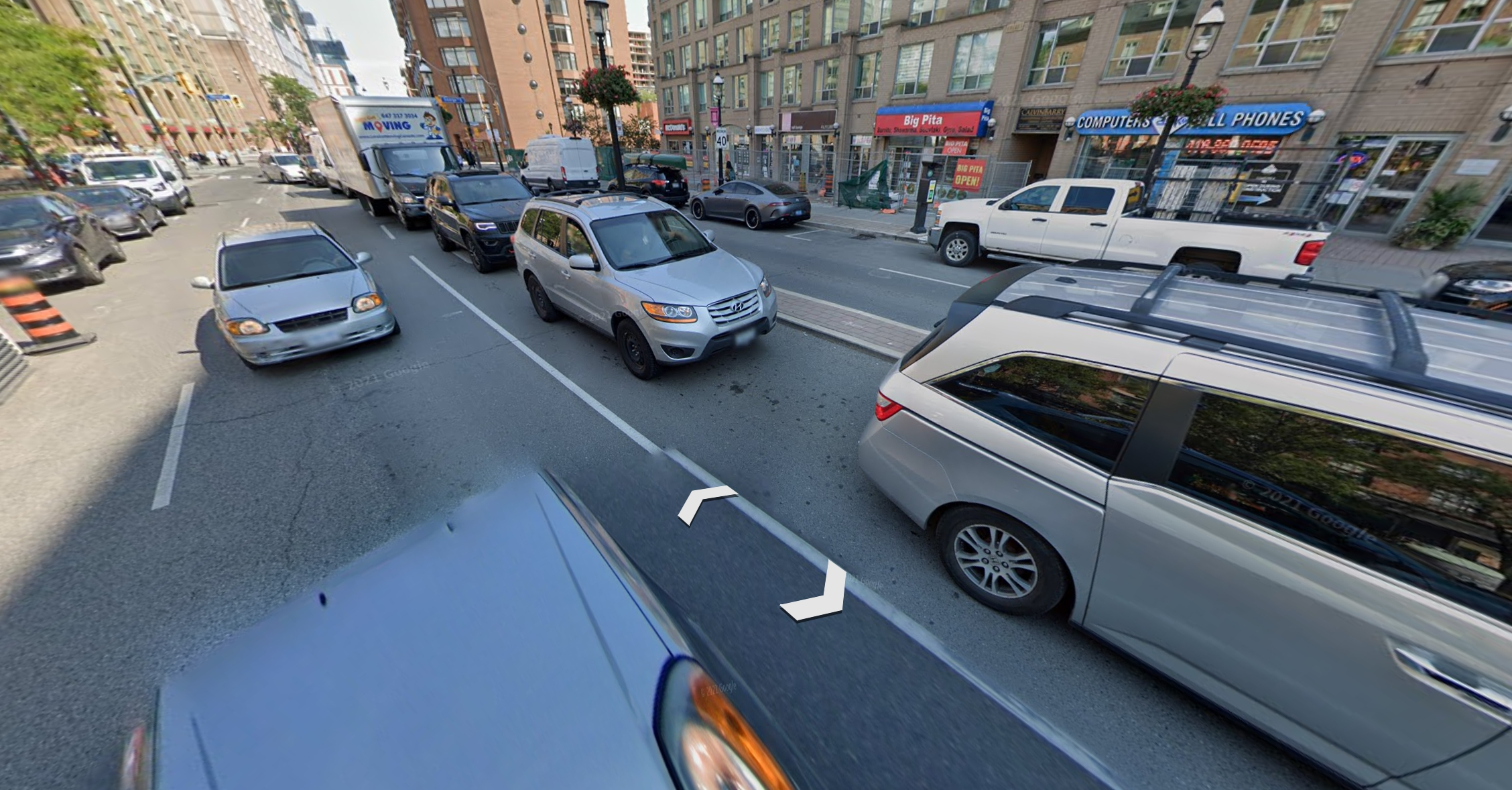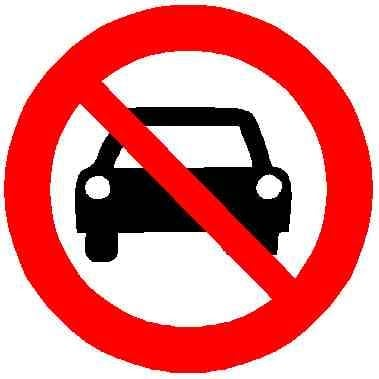Just to compare, this is the utopian dream for Toronto:

There are approx. 18 cars and trucks in that image.
They are taking up SIGNIFICANTLY more space, and are causing traffic.
Still, we keep saying, “give us more of this, please!”.
Insanity or stupidity?


Even if biking is safe when driving is safe in snowy conditions, it’s still much more annoying to be a cyclist on a snowy winter day. You either have to sweat in a ton of layers or wear flimsy ones and be chilly every time you aren’t in motion; having some environment to insulate you would be a huge advantage. I say this as someone who is not a driver but as an amateur cyclist (though not in the winter… yet).
I’m still figuring out how to make winter cycling feasible for me, and I think for most people it’s a lot of dedication and commitment that the average commuter will not want to put in. Also, icy road conditions are the worst for pedestrians and cyclists; they can be bad for cars too, of course, but obviously car tires are much bigger and can withstand much more.
I can only say this as someone who’s been a driver during Canadian winters, and also as a cyclist who rides through the winter.
Unless it’s the most miserable snow storm, like the type where I would not be driving anyway, most winter outings are worse in a car.
Since I don’t think it’s good to idle “while it warms up”, you still have to be in a cold car and battle steamy windows. You still have to scrape ice from all glass and mirrors. And then get gas when it’s cold outside (this could include going out of your way to get to a gas station, then possibly waiting while you’re there). You’d have to take the car to the car wash or risk having it rot in rust multiple times a month. And then you have to contend with finding even fewer parking spots (no on street parking around here when there’s snow). Getting around is also slower and more dangerous.
This winter has been the first where I’ve actually made an effort to do things right when it comes to cycling gear. Rather than my running shoes, which I’ve worn through past winters, I got some cheap snow shoes/boots that are insulated and keep my feet warm while riding.
And I’ve been doing layers right, and it’s SOOOOOO much better than just wearing whatever. I’ve never found myself to be too cold or sweaty, and we’re talking multi hour bike rides on a very heavy (40lbs+) manual bike, with temperatures dropping down into near -20C with the windchill! Pogies on the handlebars are a game-changer in the winter, and I’ve had them on mine for the last three.
And yes, if your city doesn’t prioritize cycling, then it can be miserable to cycle on roads where the “bike lane” is not cleared. Still, I’d rather be on a bike!
And if winter commuting by bike was something I had to do, I’d likely invest in an e-bike that could take moderately wide tires. This would eliminate the concern over being sweaty, and make it easier to get around in general.
Yeah, it’s hardest for pedestrians. I do give you kudos for trying to make winter cycling feasible.
Start with what you have, and take small trips by bike when the weather is “good enough”. See how that goes, then build from there!